- Home
- Research
This data was collected through a research project conducted in 2019 through BCPLAN, funded by BCCAT. This project aims to research and document the prior learning assessment options, processes and credit allowances in 25 post-secondary institutions across British Columbia.
Please be aware that the data found on this site page may be outdated, relevant to only one program, or not fully representative of a post-secondary institution’s offerings and may not be updated after the research project is complete after August 2019. The most accurate and up-to-date data can be gained by contacting your post-secondary institution of interest directly. Information on who within the institution to contact is provided below. Read the report.
Post-Secondary Institutions:
Definitions
There are prior learning assessment terms used throughout this report which have varying definitions across each institution’s unique uses and policies. For the purposes of this report the terms are defined as follows:
Advanced Placement: when a student is awarded advanced standing in a program based on prior experience (e.g. if a student is assessed to begin in the 3rd year of a 4-year degree program)
Assessment Methods: the methods with which the institution assesses and measures the student’s prior knowledge in the prior learning assessment process.
Course-specific: when a student is granted credit for specific courses; measured against the learning outcomes of specific courses.
Flexible Assessment: Prerequisites for a course or program are waived based on prior learning and experience.
Formal Learning: Guided by a formal curriculum and leads to a formally recognized credential.
Informal Learning: Takes place outside of formal learning environments and arises from the learner’s involvement in activities. No formal curriculum and no credits earned.
Non-formal Learning: Organized (even loosely organized), without formal credential recognition of learning.
Program-based (block-credit award): when a student is awarded a block of credits towards a program; often based on the graduate competencies of the school or program.
Primary Evidence: self-completed work (e.g. samples, self-assessments)
Prior Learning Assessment and Recognition (PLAR): A structured method of assessing a student’s prior learning or experience to award formal credit.
Secondary Evidence: External reports of accomplishments (e.g. reference letters, certifications)
Types of Prior Learning Assessment: Methods of awarding/assessing credits through PLAR. The methods used in the post-secondary institutions are Advanced Placement, Flexible Assessment, Course-specific, program-based, and credit bank).
Colleges:

Camosun College
PLAR Landing Page: Camosun.ca/learn/calendar/current/procedures
Applicant requirements: Students must meet the college admission requirements.
How do students apply? The student must approach Information Enrollment Services for an application form, then approach the Department Chair or Program Leader.
Fees: Base-funded courses are 50% of the current tuition, not base-funded fees are established by the department offering the program or course. PLAR fees are non-refundable, however, special consideration of a refund may be given in extenuating medical or compassionate circumstances as per the Course Withdrawal Policy.
Types of PLAR offered: Course-specific
Credit award limits: Information not available.
Assessment methods: Profiles and portfolios, non-credit certificates, work products, performance evaluations and course challenges.
Process steps: students request or are requested to document their experiential learning related to the learning outcomes.
Student support provided: Information Enrollment Services provides PLAR application form. Students will also have an advisory session with the Chair or Program Leader.
Can students withdraw from the process? Information not available.
How are credits recognized on transcripts? PLAR credits are considered resident credit. Grading is determined by the department, not marked as PLAR credit.
Accept other institutions’ PLAR credits? Information not available.
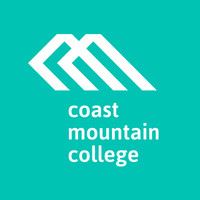
Coast Mountain College
PLAR Landing Page: coastmountaincollege.ca/admissions/requirements/prior-learning-assessment
Applicant requirements: Student must already be accepted in a credit program at Coast Mountain College.
How do students apply? Contact an Educational Advisor or the Coordinator of the appropriate program.
Fees: 50% of course tuition. No refunds are available after the assessment is completed.
Types of PLAR offered: Course-specific.
Credit award limits: Students must complete at least 25% of their courses through Coast Mountain College.
Assessment methods: Challenge exams, interview, performance tests, demonstrations, standardized tests, projects, portfolio.
Process steps: Information not available.
Student support provided: Faculty takes PLAR requests to the Dean who approves or disapproves. Program Coordinator or Academic Head notify Office of the Registrar of the course challenges and award if earned.
Can students withdraw from the process? Information not available.
How are credits recognized on transcripts? Credits are marked as prior learning assessment and count towards residency credits. Unsuccessful completion of PLAR will result in the course being suppressed on the student record.
Accept other institutions’ PLAR credits? No.

College of New Caledonia
PLAR Landing Page: Information not available.
Applicant requirements: In the past, the Community and School Support Program offered PLAR; students needed to have worked as an Education Assistant for a minimum of 5 years.
How do students apply? Students participate in an interview with the instructor as well as provide copies of transcripts and related certificates.
Fees: Cost was equivalent to one course – students can earn up to 12 credits (4 courses). Refunds are not offered.
Types of PLAR offered: Course-specific.
Credit award limits: Students could receive up to12 credits (50% of the Education Assistant Certificate).
Assessment methods: Portfolio, interview.
Process steps: Information not available.
Student support provided: Information not available.
Can students withdraw from the process? Information not available.
How are credits recognized on transcripts? Information not available.
Accept other institutions’ PLAR credits? Information not available.
PLAR Policy Not available.
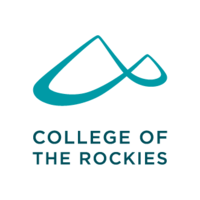
College of The Rockies
PLAR Landing Page: https://cotr.bc.ca/admission-and-transfer-information/flexible-assessment/
Applicant requirements: The student’s prior learning must be current, college-level equivalent and include the appropriate balance of theory and practice.
How do students apply? Students must have an initial discussion with the Flexible Assessment Coordinator.
Fees: Same as the course tuition.
Types of PLAR offered: Flexible assessment.
Credit award limits: No credit award limits. PLAR credits count towards residency requirements.
Assessment methods: External evaluation, worksite assessment, demonstration, standardized test, self-assessment, interview, portfolio challenge exam.
Process steps: Discussion with Flexible Assessment Coordinator, the candidate then submits an application to the program. The student then pays Flexible Assessment fee and submits required activities. The candidate accepts or does not accept grade.
Student support provided: Students are given a handbook as they work through the prior learning assessment and have access to a Flexible Assessment Advisor and the Faculty Assessor.
Can students withdraw from the process? Students can decide not to accept the assessment grade – withdrawal after assessment.
How are credits recognized on transcripts? Credits are given a letter grade and count towards GPA. a grade of “W” is added to the transcript in they do not accept the assessment grade.
Accept other institutions’ PLAR credits? Information not available.

Douglas College
PLAR Landing Page: https://www.douglascollege.ca/future-students/admission-information/transfer-credit/prior-learning-assessment-and-recognition-0
Applicant requirements: Candidates must be admitted into a program. **For the Child, Family and Community Studies department: 2 years full-time equivalent experience.
How do students apply? Students take the self-assessment quiz. Then email an Academic Advisor in the Registrar’s Office plar@douglascollege.ca. Students discuss the options with the Department/Faculty Coordinator.
Online pre-assessment: Self-assessment quiz.
Fees: The cost is based on credit equivalency and is due and payable prior to an assessment occurring. Current fees are available in the Douglas College Tuition Fee Chart.
Types of PLAR offered: Course-specific. Other departments may offer advanced placement.
Credit award limits: The policy dictates a 25% residency requirement for a diploma and 50% for a certificate. **Departments can apply for an exception, the Disability and Community Studies Department certificate residency is 33.3% department diploma has 33.3%.
Assessment methods: Portfolio-assisted, workplace-based assessment, challenge exam.
Process steps: Working with field practitioners, professionals and college instructors, you set the goals, timelines and achievements as you work towards your educational and career goals.
Student support provided: Faculty members with appropriate subject matter expertise assess prior learning submissions. **In the Child, Family and Community Studies department students discuss with a Program Advisor specific to PLAR and are provided a flexible options information booklet.
Can students withdraw from the process? Information not available.
How are credits recognized on transcripts? Grades awarded through prior learning assessment are notated as PLAR alongside whatever the grading scale. They are not included in GPA calculations.
Accept other institutions’ PLAR credits? They have accepted prior learning assessment credits in the past.

Langara College
PLAR Landing Page: Details on the transfer page.
Applicant requirements: Eligible applicants are adults who have acquired knowledge, skills and abilities outside of the post-secondary system and have received no formal education.
How do students apply? Students are advised to check with the relevant department to confirm whether PLAR is available. They can contact Registrar and Enrollment Services (geninfo@langara.ca) for direction as to the departmental contact.
Fees: Fees are currently based on the amount of credit awarded and are typically 50% of the regular course fee.
Types of PLAR offered: Course-specific, Flexible Assessment
Credit award limits: Determined departmentally, though usually fewer than 25% of total credential credits.
Assessment methods: Projects/assignments, portfolio reviews, program evaluations, challenge examinations, interview, standardized tests, skill demonstrations, compressed course format (half-format).
Process steps: Offer extended by the Department Chair to the qualified applicant.
Student support provided: The Department Chair will provide initial information and offer. Minimal instructor contact in courses, students are expected to be self-directed.
Can students withdraw from the process? Yes
How are credits recognized on transcripts? Flexible Assessment credits are indicated as such by course coding and assigned a formal grade. Practicum courses are graded S/U. Unsuccessful PLAR will be noted as ‘F’ or ‘U’ on the transcript or as ‘NG’ if all requirements are not completed.
Accept other institutions’ PLAR credits? Uncertain.
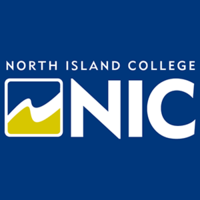
North Island College
PLAR Landing Page: https://www.nic.bc.ca/student-services/assessment-services/
Applicant requirements: Applicant’s learning must be equivalent to courses in their program area.
How do students apply? Contact the Coordinator of Assessment Services.
Fees: Fees are calculated at 75% of the tuition for each course. Paid prior to assessment.
Types of PLAR offered: Course-specific and Flexible Assessment.
Credit award limits: Maximum 50% of the program credits can be PLAR or transfer credits.
Assessment methods: Portfolio, challenge exam, interviews, skill demonstrations, assignments.
Process steps: Information not available.
Student support provided: The Coordinator of Assessment Services works with the candidate and the Department Chair of that program.
Can students withdraw from the process? Information not available.
How are credits recognized on transcripts? Information not available.
Accept other institutions’ PLAR credits? Information not available.

Northern Lights College
PLAR Landing Page: nlc.bc.ca/admissions/entrance-assessments/prior-learning-assessment
Applicant requirements: Applicant must be accepted into a program at Northern Lights College.
How do students apply? Inquire with campus services who can refer to the appropriate Department Chair or you may inquire directly through your program of interest.
Fees: Course challenge fees are 75% of the cost of a course’s tuition.
Types of PLAR offered: Course-specific, and “PLAR as a part of an application for admission”.
Credit award limits: Prior learning assessment credits are granted toward a certificate or diploma only. PLAR does not meet residency requirements. Most programs require a minimum of 25% residency.
Assessment methods: Portfolio, challenge exam, formal course.
Process steps: Information not available.
Student support provided: Students discuss the method of assessment with the Designated PLAR faculty. Departmental faculty conduct the prior learning assessment and determine credit awards. Students are supported by the Assessor through the process.
Can students withdraw from the process? Extenuating circumstances aside, not once they have registered.
How are credits recognized on transcripts? Prior learning assessments are awarded a letter grade. The grade does count towards GPA.
Accept other institutions’ PLAR credits? Depending on the process of the other institution.
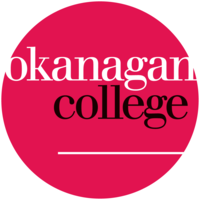
Okanagan College
PLAR Landing Page: https://webapps-5.okanagan.bc.ca/ok/Calendar/Admissions
Applicant requirements: Prior learning assessment is available to students that apply to a program and have some training or other non-formal experience in the area of their chosen program.
How do students apply? Contact your Department Chair to determine which courses are available for PLAR.
Fees: Challenge exam is 50% of the regular course fee. Portfolio assessment with a work-based assessment is 100% of the regular course fee. Portfolio assessment without a work-based assessment is 75% of the regular course fee.
Types of PLAR offered: Course-specific.
Credit award limits: 50% of the credits required for a given degree can be transfer credit or PLAR credits.
Assessment methods: Challenge exam, portfolio assessment.
Process steps: Information not available.
Student support provided: Information not available.
Can students withdraw from the process? Information not available.
How are credits recognized on transcripts? Departments will have the discretion to assign PLAR credit with or without a grade. Transcripts shall identify credits granted.
Accept other institutions’ PLAR credits? At the discretion of the department.
PLAR Policy (academic calendar)
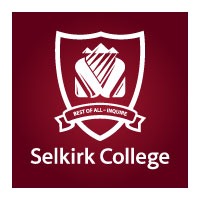
Selkirk College
PLAR Landing Page: https://selkirk.ca/program/rhm/admission-requirements
Applicant requirements: Determined individually by each school chair. Students must meet program entrance requirements.
How do students apply? Contact the Registrar.
Fees: Policy states: regular tuition plus $37 exam fee.
Types of PLAR offered: Course-specific.
Credit award limits: Information not available.
Assessment methods: Challenge exam, interview, documentation.
Process steps: Information not available.
Student support provided: Information not available.
Can students withdraw from the process? Information not available.
How are credits recognized on transcripts? Information not available.
Accept other institutions’ PLAR credits? Determined by each department.

Vancouver Community College
PLAR Landing Page: Information not available.
Applicant requirements: Students must apply and meet entrance requirements for the program or be accepted into a program.
How do students apply? The student consults with the PLAR Advisor in the Registrar’s Office and/or the Department Leader.
Fees: Challenge exams are 50% of tuition rate per credit. Skills/portfolio assessment is $80 per hour. Fees are non-refundable.
Types of PLAR offered: Course-specific, advanced placement.
Credit award limits: Prior learning assessment credits can take up no more than 75% of program credits.
Assessment methods: Challenge exam, standardized testing, portfolio/products, demonstration, interview, worksite assessment, self-assessment, and external evaluation.
Process steps: Credit granting is housed within the Registrar Office. Processes are reviewed at a departmental level. PLAR availability is determined in individual course outlines.
Student support provided: PLAR Advisor and/or Department Leader consults with students.
Can students withdraw from the process? Information not available.
How are credits recognized on transcripts? Noted as Satisfactory (S) or unsatisfactory (U). Neither contributes to GPA.
Accept other institutions’ PLAR credits? Information not available.
Universities
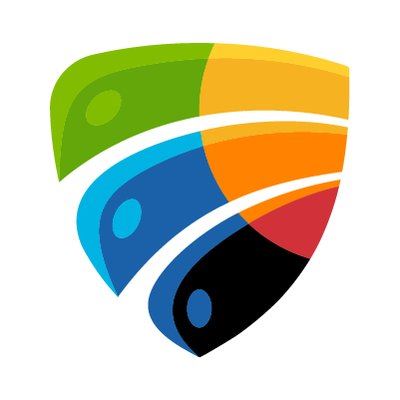
Capilano University
PLAR Landing Page: capilanou.ca/mycapu/policies–procedures/academic-policies-and-procedures
Applicant requirements: Applicants must be admitted to a program at Capilano University. Minimum 5 years experience.
How do students apply? For more information about PLAR in your program contact the Program Coordinator.
Fees: The regular tuition fee for the course will be required for prior learning assessment.
Types of PLAR offered: Course-specific. “Assessment will normally result in credit (assigned or unassigned) being granted to satisfy the admission or graduation requirements of a program offered by Capilano University.”
Credit award limits: Information not available.
Assessment methods: Test/exam, essay, simulation/demonstration, interviews, portfolio assessment.
Process steps: Information not available.
Student support provided: Students consult with PLAR Advisor and/or the Department Leader to determine timelines for PLAR. Faculty with expertise in the area will assess prior learning.
Can students withdraw from the process? Once a student had registered and paid for PLAR assessment, withdrawal is not permitted.
How are credits recognized on transcripts? PLAR credits will be marked as CR (credit granted) and it will be noted that credit was earned through the PLA process
Accept other institutions’ PLAR credits? Information not available.
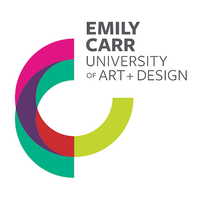
Emily Carr University
PLAR Landing Page: ecuad.ca/admissions/application-info/undergraduate-applications/prior-learning-assessment
Applicant requirements: Minimum five years of professional experience after high school graduation related to visual art practice.
How do students apply? Contact your academic advisor.
Fees: Domestic students: assessment and transcription are $200 each. International students: assessment and transcription are $775 each.
Types of PLAR offered: Course-specific.
Credit award limits: Maximum of 9 PLAR credits (undergraduate). Normally, no more than 50% of the credit required for a degree can be transfer credit and PLAR.
Assessment methods: Portfolio “You’ll need to prepare a portfolio directly related to the outcomes of a course for which you are seeking credit.”
Process steps: Information not available.
Student support provided: Qualified Assessors review each formal application.
Can students withdraw from the process? Information not available.
How are credits recognized on transcripts? Information not available.
Accept other institutions’ PLAR credits? Credits earned via PLAR at other recognized post-secondary institutions are acceptable at Emily Carr, provided that the course to which those credits apply is recognized by the University as suitable for transfer credit.
PLAR Policy not found
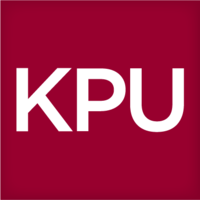
Kwantlen Polytechnic University
PLAR Landing Page: kpu.ca/registrar/pla
Applicant requirements: Applicants must have been admitted into a Kwantlen Polytechnic Program.
How do students apply? Contact designated PLAR Program Advisor for the course in which you are seeking prior learning assessment.
Fees: Same as the course tuition. Memorandum of Understanding (MOU) through TRU follows TRU fees.
Types of PLAR offered: Course-specific (through MOU), program-based.
Credit award limits: Each program will determine individually. Maximum of 50% of program credits can be PLAR or transfer credit.
Assessment methods: Challenge exam, standardized test, portfolio, demonstration, interview, worksite assessment, self-assessment, external evaluation.
Process steps: Students must contact the designated PLAR program advisor for the course in which you are seeking. PLAR Program Advisor will conduct a pre-assessment, then the PLAR request is forwarded to designated PLAR Assessor who will then contact the student to select the assessment method and deadline. PLAR Assessor will submit the results of the assessment to the Office of the Registrar.
Student support provided: PLAR Assessor will discuss assessment method and timeline with the student.
Can students withdraw from the process? Information not available.
How are credits recognized on transcripts? The prior learning assessment attempt will appear on the transcript whether successful or not. Course-specific is not indicated as PLAR credit.
Accept other institutions’ PLAR credits? No.
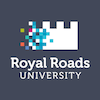
Royal Roads University
PLAR Landing Page: royalroads.ca/prospective-students/flexible-admission
Applicant requirements: “We’re looking for self-directed and highly motivated people with program-based knowledge and skills, as well as strong interpersonal, research and communication skills.”
How do students apply? Contact Admissions.
Fees: Course Challenge (successful) = 50% of tuition per course. Course Challenge (unsuccessful) = $147.90. PLAR Formal Agreement Administration fee (per request) = $147.90.
Types of PLAR offered: Flexible admission, course-specific.
“Applicants who do not have the formal academic education to qualify for Standard Admission may be assessed under Flexible Admission on the basis of both their formal education and their informal learning in accordance with the Flexible Assessment Policy and practices at Royal Roads University”
Credit award limits: Information not available.
Assessment methods: Portfolio, exam, interview, demonstration.
“Applicants will, at a minimum, be required to: provide a Personal Statement or Statement of Intent, provide a detailed resume, provide two (or more) letters of reference, provide official transcripts for all post-secondary credit courses and/or programs previously taken. In limited cases, applicants may also be required to: provide a Military Personnel Record Resume (MPRR) (applies to Candian military personnel/veterans), provide a portfolio containing evidence of learning already achieved, demonstrate competence before an objective observer, write an examination and test, complete a questionnaire.”
Process steps: Information not available.
Student support provided: Information not available.
Can students withdraw from the process? Information not available.
How are credits recognized on transcripts? Does not specifically designate differently from other credits.
Accept other institutions’ PLAR credits? Not available.

Simon Fraser University
PLAR Landing Page: sfu.ca/ecologicalrestoration/Admission.html
Applicant requirements: Applicants must demonstrate working knowledge of >80% of the material within a course.
How do students apply? Talk to an Academic Advisor.
Fees: Information not available.
Types of PLAR offered: Course-specific.
Credit award limits: Information not available.
Assessment methods: Challenge exam, assignment, demonstrate working knowledge of applied concepts.
Process steps: The Applied Research Committee will assess applicants and provide details of the evaluation criterion. Knowledge and skills will be assessed, course by course, by the Applied Research Committee and the associated faculty members.
Student support provided: Information not available.
Can students withdraw from the process? Information not available.
How are credits recognized on transcripts? Information not available.
Accept other institutions’ PLAR credits? No.
PLAR Policy not available.

Thompson Rivers University
PLAR Landing Page: tru.ca/distance/plar-ol.html
Applicant requirements: Must be admitted into a TRU program, at least 3-5 years of experience after high school.
How do students apply?
Online: Contact a PLAR Advisor. Submit a Knowledge Resume to be assessed by the PLAR Committee.
Campus: Contact your Faculty Member or Program Advisor.
Fees:
Online: Program-based: $750 flat fee. Course-specific: $520 initial fee + 36 per credit. Challenge Exam: $100 per credit. Combination of program-based and Course-assessed: $750 + $36 per credit.
Campus: Full tuition.
Both fees are non-refundable.
Types of PLAR offered:
Online: Course-specific, program-based, challenge exam, combination.
Campus: Course-specific.
Credit award limits:
Online: Varies with program and number of formal credentials on their transcript. Maximum of 60 Lower-Level Credits and 15 Upper-Level credits.
Campus: A maximum of 25% of program credits.
Assessment methods: Portfolio, interview, exam, assignments, performance/demonstration.
Process steps: Online: Student submits Knowledge Resume to be assessed by the PLAR Committee. The student develops their portfolio. The portfolio is assessed by PLAR Assessors. The student is notified of their PLAR credit award.
Student support provided: Online: PLAR Advisors advise students on program-based and course-specific PLAR. Templates and samples are made available. E.g.: Samples of PLAR portfolios. Knowledge Resume Template.
Can students withdraw from the process? Students can withdraw at any point.
How are credits recognized on transcripts? Credits are marked with an S on transcripts which will not count toward GPA. If the request is unsuccessful there will be no listing on the transcript.
Accept other institutions’ PLAR credits? TRU accepts PLAR credits from all Canadian accredited PSIs that have formally adopted quality assurance standards from a recognized organization such as CAEL and UNESCO.

University of British Columbia
PLAR Landing Page: Nursing: nursing-axis.sites.olt.ubc.ca/home/admissions/plar/
Applicant requirements: Related experience in the past five years.
How do students apply? Information not available.
Fees: $59 for the PLAR application fee (Nursing)
Types of PLAR offered: Course-specific, advanced placement.
Credit award limits: Information not available.
Assessment methods: Information not available.
Process steps: Information not available.
Student support provided: Information not available.
Can students withdraw from the process? Information not available.
How are credits recognized on transcripts? Information not available.
Accept other institutions’ PLAR credits? Credits earned via PLAR or other recognized post-secondary institutions are acceptable at UBC if the credits are assigned to specific courses and the course is recognized by UBC as suitable for transfer credit.
PLAR Policy not available.

University of Northern British Columbia
PLAR Landing Page: Information not available.
Applicant requirements: Information not available.
How do students apply? Information not available.
Fees: Information not available.
Types of PLAR offered: Information not available.
Credit award limits: Information not available.
Assessment methods: Information not available.
Process steps: Information not available.
Student support provided: Information not available.
Can students withdraw from the process? Information not available.
How are credits recognized on transcripts? Information not available.
Accept other institutions’ PLAR credits? “Credit granted at another institution on the basis of like or work experience is not acceptable for transfer credit.”
PLAR Policy not available.
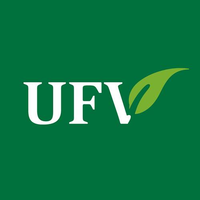
University of Fraser Valley
PLAR Landing Page: ufv.ca/plar
Applicant requirements: At least five years of experience in one job or closely related jobs. PLAR is available to applicants who have been admitted to UFV programs and students who are currently enrolled in credit courses.
How do students apply? Contact an Academic Advisor or a Faculty Member to discuss your personal suitability.
Online pre-assessment? See: “Am I a Good Candidate?”
Fees: Normally 75% of the cost of a UFV credit course. Students in the Program-based PLAR process, in the Adult Education department, pay a flat fee of 75% of 12 credits regardless of how much program PLAR credit they receive. Non-refundable.
Types of PLAR offered: Course-specific, program-based, advance placement and flexible admission.
Credit award limits: Residency requirements.
Adult Education: Up to 54 credits.
Assessment methods: Portfolio, examination.
Process steps: Department head or Director consult with the student to decide which assessment methods are most appropriate. The faculty evaluator determined the level and amount of credit awarded.
Student support provided: Students work with an advisor and an assessor to set expectations, identify possible PLAR courses, receive approval from the department head or director, gather evidence on past experiences/accomplishments, and prove their learning. Also see the student resource page: ufv.ca/plar/students-and-prospective-students/resources-for-students
Adult Education: Required 3 credit course as a pre-requisite to PLAR.
Can students withdraw from the process? No.
How are credits recognized on transcripts? Grading is usually on a Credit (CR)/No Credit (NCR). Letter grades may be possible with the agreement of both the student and the evaluator. Do not count toward residency requirements.
Accept other institutions’ PLAR credits? Yes.
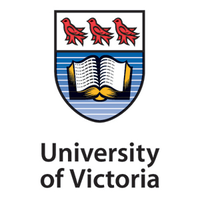
University of Victoria
PLAR Landing Page: https://www.uvic.ca/hsd/socialwork/current/bsw/field-education/resources/index.php#pla
Bachelor of Social Work: Experiential Learning (practicum placement)
Applicant requirements: A student must have a minimum of two year’s ‘social work’ experience (approximately 4000 hours) completed within the last five years.
How do students apply? Contact the Registrar’s Office. Students can submit a PLAR application and supervisor form.
Fees: Refund deadline follows the deadline for dropping a course with 100% refund.
Types of PLAR offered: School of Social Work – in place of practicum. In the form of a course.
Credit award limits: Information not available.
Assessment methods: Portfolio, personal statement, responses to a series of questions/reflections, an analysis of a case study, a video demonstration and written critique, supervisor’s evaluation.
Process steps: PLAR Assessor will contact the student at the beginning of the term. The practicum team will review your application and advise you by email if you have been approved.
Student support provided: PLAR Assessor discusses the student’s role, expectations, working relationship and feedback. They are available throughout the PLAR process.
Can students withdraw from the process? Following the institution’s deadline for dropping a course.
How are credits recognized on transcripts? Recognized as course credit (SW 304 A) – if not completed an F will be recorded on the transcript.
Accept other institutions’ PLAR credits? Information not available.
PLAR Policy not found
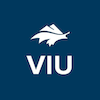
Vancouver Island University
PLAR Landing Page: services.viu.ca/advising/prior-learning-assessment-pla
Applicant requirements: PLAR is available to accepted students only. Eligibility determined by Program Head.
How do students apply? Students may consult the Program Chair to discuss PLAR. Contact Advising.
Fees:
Portfolio Single course: $250.00 for 3 CreditsPortfolio single credit – Under 75 hours $125, 75-150 hours $250, 150 hours $375Challenge Exam:Pre-existing Exam format – $50, Customized – $100
Types of PLAR offered: Course-specific, program-based, clinical assessment.
Credit award limits: Information not available.
Assessment methods: Challenge exam, portfolio.
Process steps: When a department accepts a PLAR candidate the Dean emails the Records Department with their approval to open a new PLAR section.
Student support provided: Information not available.
Can students withdraw from the process? Information not available.
How are credits recognized on transcripts? Information not available.
Accept other institutions’ PLAR credits? Information not available.
Institutions
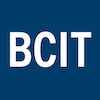
British Columbia Institute of Technology
PLAR Landing Pages: Admission and Transfer, SITE Centre
Applicant requirements: Students must have related informal knowledge.
SITE Centre: five-seven years of management or supervisory experience.
How do students apply? Contact the relevant Program Assistant or the SITE Centre.
Fees: Between 50% and full tuition depending on the complexity of the process. No fee for military assessment.$115 for Mature Student, $285 for international students.
Types of PLAR offered: Course-specific, advanced placement, military assessment.
Credit award limits: For advanced placement, one year for diplomas or direct entry into the BBA.
Assessment methods: Challenge exam, demonstration, assignment, interview, portfolio, documentation.
Process steps: Students use the online program database to determine the program. Then review course descriptions to review equivalent competencies, lastly, contact the Program Assistant.
Student support provided: There will be contact between the SITE Assessment Center and the student. PLAR candidates have access to one-on-one advising. The Assessor is responsible for informing the student of the course content, assessing whether the documentation supports the claim, and for informing BCIT of successful assessment.
Can students withdraw from the process? At SITE, once the student pays, there is no refund. However, the student decides if they want to continue or not with the assessment.
How are credits recognized on transcripts? Annotated as “L.” Does not count toward GPA. SITE Centre: block PLAR credits are indicated as block credit transfer.
Accept other institutions’ PLAR credits? Typically yes, depending on the department.
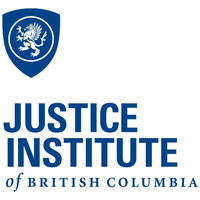
Justice Institute of British Columbia
PLAR Landing Page: jibc.ca/registration/prior-learning-assessment
Applicant requirements: Students must be accepted into certificate, diploma or degree at JIBC. Application form.
How do students apply? Students must submit the application form to the Admissions Office or Student Services.
Fees: $120 per credit requested.
Types of PLAR offered: Advanced placement, course-specific.
Credit award limits: Maximum of 50% can be PLAR credit or transfer credit.
Assessment methods: Portfolio, challenge exam, assignment.
Process steps: Information not available.
Student support provided: Information not available.
Can students withdraw from the process? Information not available.
How are credits recognized on transcripts? Information not available.
Accept other institutions’ PLAR credits? Information not available.
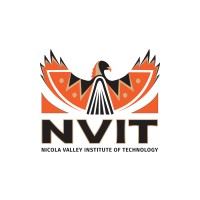
Nicola Valley Institute of Technology
PLAR Landing Page: nvit.ca/services/plar.htm
Applicant requirements: Before applying for PLAR a student must meet with the PLAR Advisor for detailed information regarding requirements and process.
How do students apply? Inquiries about prior learning should be directed to Academic Advisory.
Fees: Fees for PLAR are the same as tuition for regular classroom registration.
Types of PLAR offered: Challenge exams, portfolios, demonstrations, and worksite assessments.
Credit award limits: Information not available.
Assessment methods: Information not available.
Process steps: Information not available.
Student support provided: Advisor will provide information on requirements, processes and preparation.
Can students withdraw from the process? Information not available.
How are credits recognized on transcripts? Information not available.
Accept other institutions’ PLAR credits? NVIT accepts PLAR credit awarded at other public post-secondary institutions in the same manner as transfer credit.


